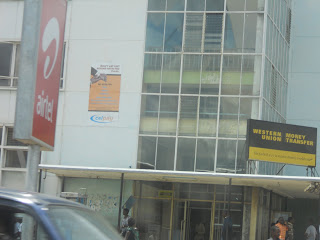Creche at St Anthony's our
parish
Last month we celebrated a
different Christmas
Last month was our first
Christmas outside of our hemisphere, outside of the United States,
outside of the physical reach of any one of our families. I knew that
I would miss my children, grandchildren, family and friends. This has
been true for some or all of them at one time or another over the
years.
I told myself I was trading
all of that for the experience of an African Christmas. I had
complained about the fact that Christmas was coming earlier and
earlier every year. In the states, it seem to start at the same time
as Thanksgiving or almost.
Not in Zambia. I saw no
Christmas decorations on the streets, no Christmas music being played
in the stores where we shop. No Christmas music blaring from the
radios of cars. It seem the only person who were aware of Christmas
was the grocery store which had stars, ornaments lights and garlands
for sale.
To be continued.











